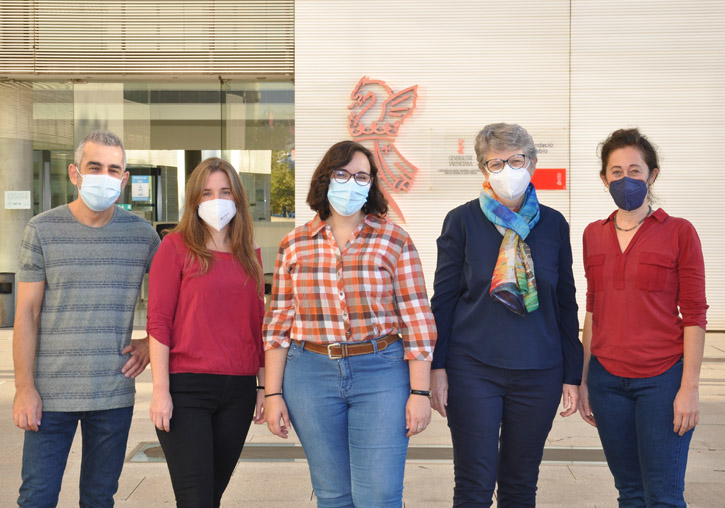A study links social exclusion and family poverty with poorer mental health in childhood
- Scientific Culture and Innovation Unit
- October 21st, 2021

The FISABIO Mixed Unit for Research in Epidemiology, Environment and Health -Jaume I University-University of Valencia, which has members of the CIBEResp, has developed, within the framework of the INMA (INfancia y Medio Ambiente) study, an investigation that assesses the consequences of the risk of poverty and / or social exclusion in children’s mental health.
The work, published in the journal European Child & Adolescent Psychiatry, analyses the role of the closest family and social environment that surrounds 395 and 382 boys and girls between 7 and 11 years old in two areas with very different levels of wealth and investment policies from Guipúzcoa and València, respectively. According to research, a higher risk of poverty and social exclusion is directly related to an increase in mental health problems in childhood. Indirectly, this problem is also related to the physical and social context, family stress and parental profile.
At the institutional level, the European Commission defines poverty as the state in which there is insufficient resources to live with dignity. For its part, social exclusion encompasses people who are not allowed to participate in society because of their characteristics. To measure these two parameters, the analysis used the AROPE indicator (At Risk of Poverty or Social Exclusion), used since 2010 by the European Union.
When relating AROPE with the mental health and family context of the children under study, the results showed that the risk of poverty and social exclusion is related to more mental health problems, both internalising type 2 (anxiety, depression or problems somatic) as externalising (behaviour problems or aggressiveness).
The relationship between the level of poverty and family social exclusion, and internalising and externalising problems was determined by the level of parental stress. It was also affected by the parental profile, which includes concepts such as the perception that mothers and fathers have of their role in raising their child or the knowledge they have about evolutionary development.
Llúcia González, researcher in the Environment and Health area of the Fisabio Foundation explains that “knowing the extent and magnitude of problems such as the risk of poverty and/or social exclusion, the axis of transmission of these inequalities or the compensatory mechanisms of the family environment, may contribute to improve the symptoms of internalising and externalising problems”.
In this sense, the research points out that social systems close to children – such as the family, school or other social networks – can contribute to the development of protection mechanisms that compensate for the effect of unfavourable structural conditions in childhood.
On behalf of the FISABIO Mixed Unit for Research in Epidemiology, Environment and Health-Jaume I University-University of Valencia, in addition to Llúcia González, the article was signed by Marisa Estarlich (Department of Nursing and Podiatry), Mario Murcia and Marisa Rebagliato. Sandra Simó (Department of Basic Psychology) also participated.
Article:
Llúcia González et al. «Poverty, social exclusion, and mental health: the role of the family context in children aged 7–11 years INMA mother‑and‑child cohort Study». European Child & Adolescent Psychiatry. DOI: https://doi.org/10.1007/s00787-021-01848-w
















